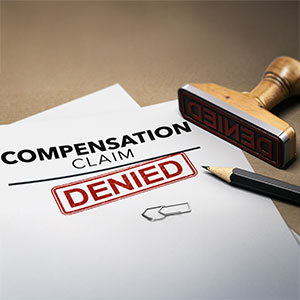Motion For Enlargement Won’t Extend Deadline On Proposal For Settlement
Personal InjuryIn the case of Koppel v. Ochoa, Case Number SC16-1474 (May 17, 2018), the Florida Supreme Court held that the filing a motion for enlargement of time does not automatically extend the deadline to extend a proposal for settlement.
What Happened In The Case
This case arose from a 2011 car accident between Ochoa and Koppel. Ochoa sued Koppel seeking damages for negligence in causing the accident.
After the lawsuit was filed (and after allowing more than 90 days to pass from the initial pleadings), Ochoa served Koppel with a proposal for settlement pursuant to section 768.79, Fla. Stat. and Fla. R. Civ. P. 1.442. The amount of the proposal was for $100,000.
Koppel responded on the day before the proposal for settlement was set to expire with a motion for enlargement of time to accept the proposal. Her reasons were that she had not had sufficient time to evaluate the proposal, that the plaintiff had recently had a new MRI performed, that the defense had not taken the deposition of the plaintiff, and that the case was “in its infancy.”
The trial judge denied Koppel’s motion for enlargement of time and Koppel filed a notice that she was accepting the plaintiff’s proposal for settlement (because she lost the hearing in court). Ochoa then moved to strike the acceptance as untimely while Koppel moved to enforce a settlement.
The trial judge ruled to enforce the settlement because, under Goldy v. Corbett Cranes Services, Inc., 692 So. 2d 225 (Fla. 5th DCA 1997), the filing of a motion to enlarge time under rule 1.090 tolled the 30 day deadline to accept. This appeal followed.
Potential For Abuse
The Second DCA held that filing a motion for enlargement does not AUTOMATICALLY extend the deadline to accept a proposal for settlement. The obvious reason for that is the potential for abuse. This is why the Second DCA (and affirmed by the Florida Supreme Court) require that a party “show cause” in order to grant an extension of time.
Previously, the Goldy case (decided by the Fifth DCA) held that a motion to extend time “effectively tolled the responsive period until the motion could be heard.”
In this case, it was a game for Koppel to “buy” more time to accept by filing a motion for enlargement just because Koppel (remember, Koppel was actually represented by an attorney paid for her by her automobile insurance company) did not like the deadline.
Must Show Cause To Get An Extension Of Time
Requiring a party to “show cause” before litigation deadlines are extended is good policy. I cannot think of many scenarios where there is “cause” to extend a deadline for a proposal for settlement because the insurance company usually decides relatively early on in the claims process what the value (or maximum value or “reserve”) of a claim is going to be. Therefore, when a proposal for settlement is received that is within the “reserve value,” it may be wise for the insurance company to accept rather than seek a further delay of the claim.
On the other hand, other types of deadlines (such as discovery deadlines which are 30 day deadlines) often carry no harm or prejudice to any of the parties to the lawsuit. In those instances, the degree of “cause” needed to obtain an extension of time should be very low (in fact, most attorneys will avoid motions to extend discovery deadlines by agreeing to an extension out of professional courtesy).
Get Help With Your Case
If you have a personal injury lawsuit and need the help of a personal injury attorney in Lakeland, Florida, you should contact us for a free consultation to discuss what we can do for you.


